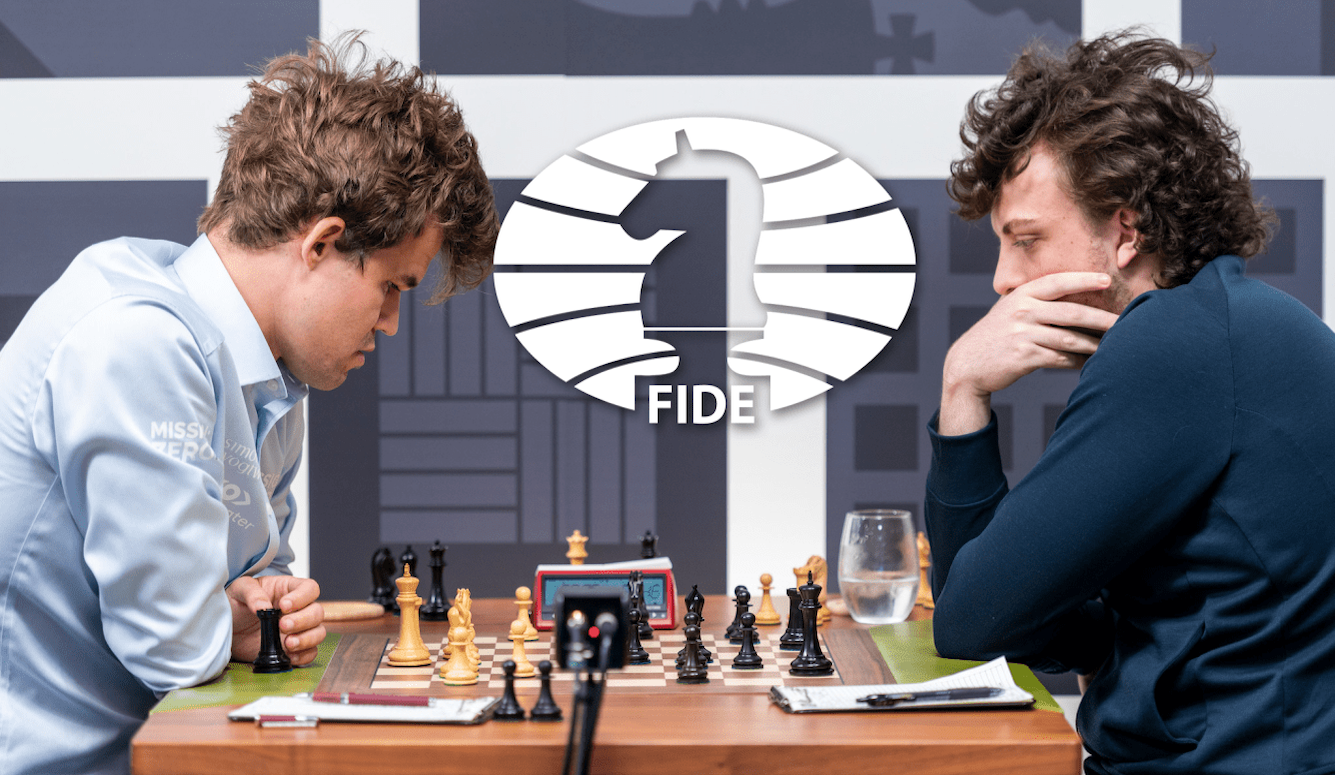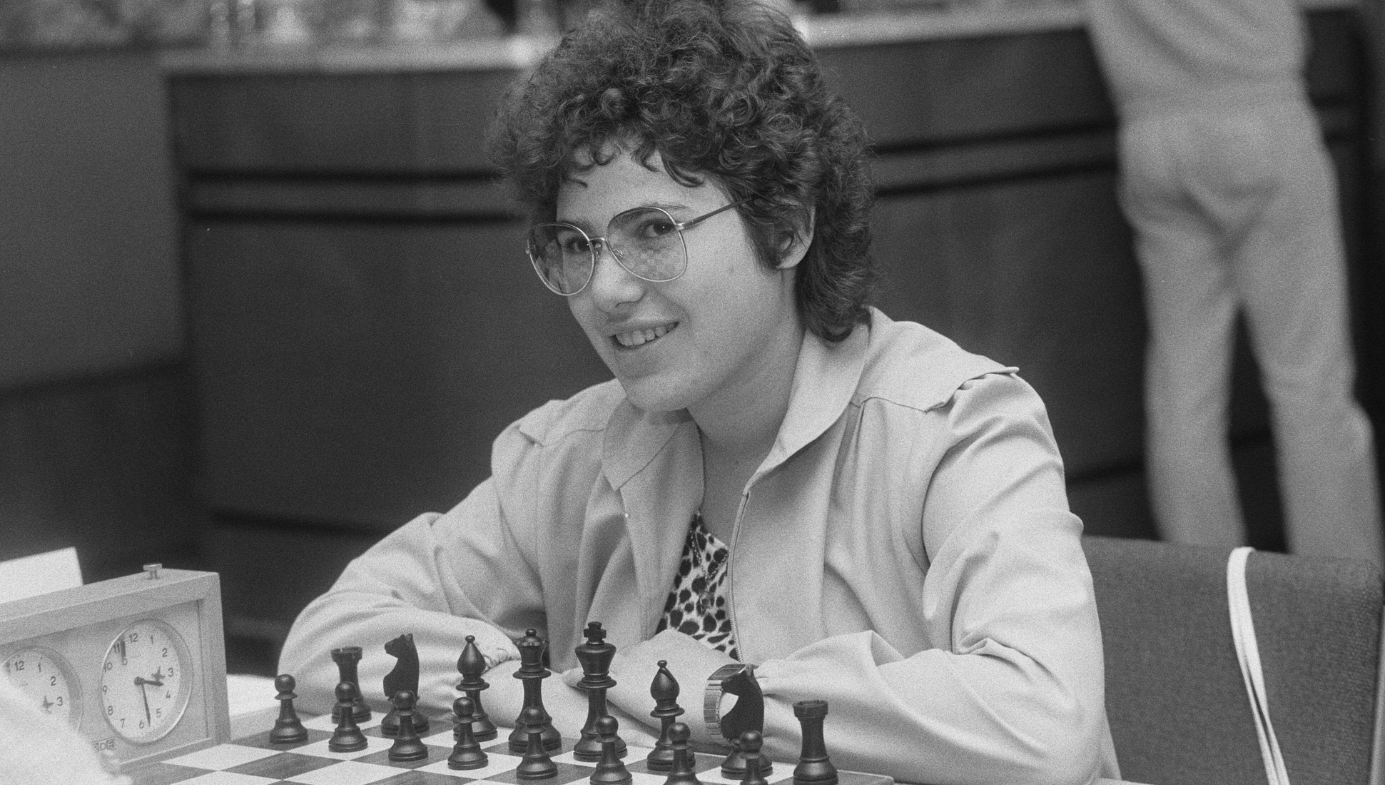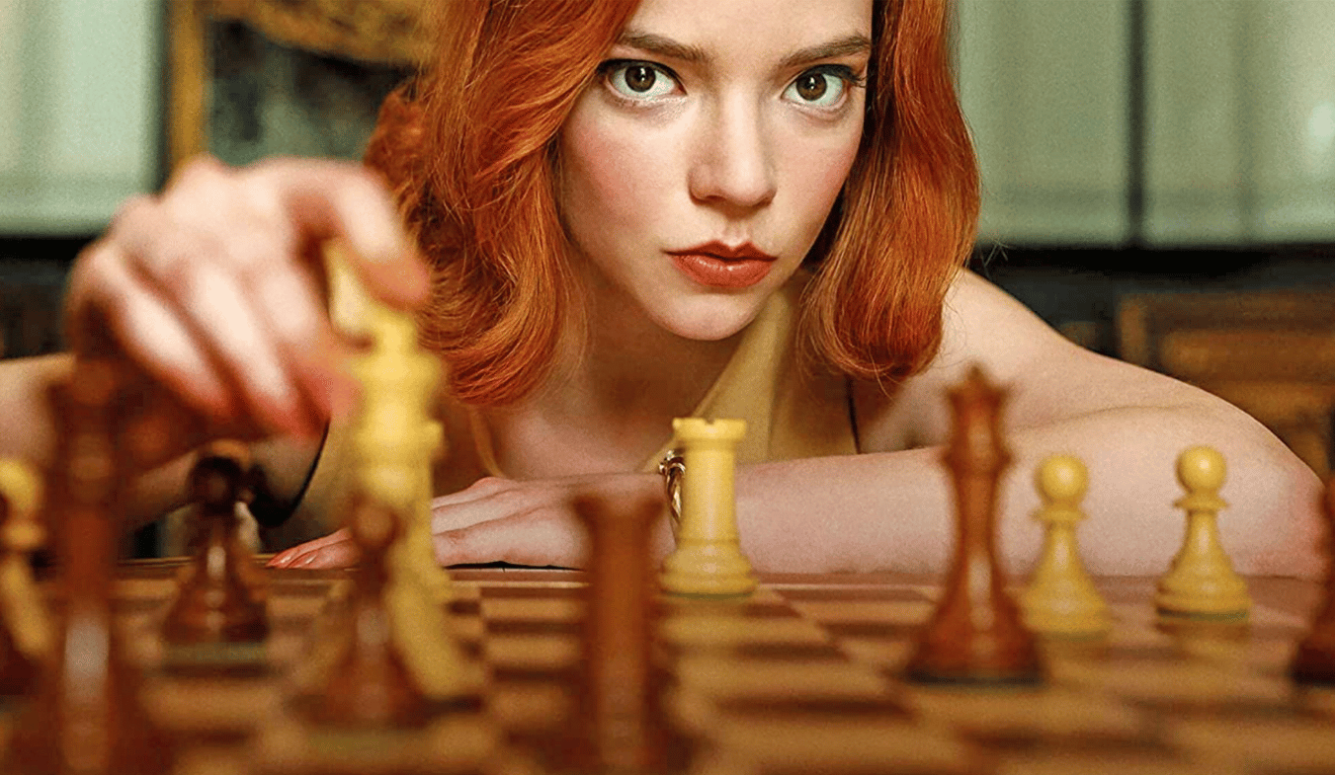Chess
The Chess Cheating Epidemic
The Chief Chess Officer of Chess.com describes the crisis he confronted when Norwegian chess grandmaster Magnus Carlsen lost a tournament match to a suspected cheater.

The second I landed at Salt Lake City International, the first notification that popped up on my phone was a WhatsApp message from Henrik Carlsen, asking for advice. Assuming he had to be texting about his son Magnus’s match that day at the 2022 Sinquefield Cup in St. Louis, before calling him, I clicked over to check out the latest results from the tournament.
I’d left St. Louis three hours before. Since the Sinquefield Cup is one of the most prestigious chess tournaments in the world, I’d been there to represent Chess.com at the opening ceremonies. I’d also brought my two sons, Nash and Warner. Logic, the rapper who’d competed in our celebrity PogChamps tournament the year before, was also playing a concert in the city that weekend to wrap up his tour, and he’d invited me and the boys backstage to see the show.
On Sunday morning, Magnus Carlsen, the reigning world champion and quite possibly the greatest chess player of all time, was going up against a young American grandmaster named Hans Niemann in round three of the event. It was the kind of match that should have offered a rather routine victory for a player of Carlsen’s stature; Niemann, though talented, wasn’t someone you’d normally even mention in the same breath as the GOAT. But while I was in the air, Hans obliterated Magnus. It was the world champion’s first loss as White (which moves first) in classical chess in fifty-three games over eight years, an astonishing upset.
Hence the message from Magnus’s father on my phone. The moment I pulled in the driveway at home and got the boys out of the car, I called him. Henrik’s a smart guy, and his questions to me were asked carefully and deliberately. “What does the Chess.com cheating algorithm do?” he asked. “What would you guys be able to detect in regard to cheating?”
He made no specific reference to what had happened in St. Louis, but he didn’t have to. I knew exactly what he was getting at. Everyone in the chess world knew that cheating had become an existential threat to the game. With the rise of artificially intelligent chess engines, computers could now play the game better than any human being on the planet. Not only that, the engines themselves were free and open-source; anybody could go to the app store on their phone and download a program that allowed them to beat every grandmaster who’d ever lived.
Before the advent of AI, cheating had rarely been a problem in chess. It was a “gentleman’s game,” as some liked to say. But once the ability to cheat made its way into everyone’s pockets, especially with the younger generation of players, good manners went out the window. Thousands of people were cheating online every day. Rumours about players cheating in different tournaments had started swirling constantly in random corners of the internet.
Thanks to AI, the world of competitive chess was barrelling toward a total breakdown of mutual faith and trust, without which no fair competitive playing field can exist. The legitimacy of the game itself was at risk. At some point it was going to boil over and explode in some spectacular way that called the integrity of the game into question. The general public was still largely unaware, but inside the chess world, everybody knew it was coming. It was only a matter of time.
Hans Niemann was one of the players who everyone had been whispering about. He’d had a startling rise in the ratings over the previous eighteen months, and there was a great deal of speculation about how he’d pulled it off. People believed he’d cheated in cash tournaments online, specifically on Chess.com, and it had become an openly debated question as to whether or not Hans was cheating in over-the-board tournaments as well. When Magnus had faced Hans a few weeks before, at the FTX Crypto Cup in Miami, he had dominated that match, winning three games to one. Still, rumour had it that Magnus and the other top players in the tournament had come away from Miami thinking something was fishy about Hans’s play. Then came this bewildering upset in St. Louis.
The suspicions were not entirely unfounded. Hans Niemann had cheated on Chess.com. I knew, because, as the company’s chief chess officer, I’d helped develop the most robust and accurate cheat detection system in the game. Not only were we capable of catching and closing the thousands of anonymous accounts cheating online every day, we had also caught and closed the accounts of dozens if not hundreds of well-known titled players over the years. I handled most of those cases personally, calling the players, taking their confessions, and laying out the sanctions they would have to comply with if they wanted to continue playing on Chess.com.
Such was the case with Hans. We’d caught him cheating on our site. He’d confessed. Case closed. But our policy was to handle cheating confidentially, particularly with players under the age of eighteen, which Hans had been at the time we’d caught him.

I did my best to answer Henrik Carlsen’s questions simply. I explained how Chess.com’s cheat detection system worked in broad terms, laying out what it could and could not do, while still avoiding the confidential parts of the algorithm and the highly complex maths behind it, as well as the intricate manual review that goes into each case. But eventually, inevitably, Henrik started to ask me about the specific rumours about Hans. Was it true that he’d been caught cheating on our site? What did Chess.com think about Hans’s over-the-board play? And what information, if anything, would I be willing to provide on the matter?
I didn’t know how much I should tell Henrik. I felt uneasy, and it was hardly the first time. When I started at Chess.com, I’d never imagined myself adjudicating these types of situations. Now, with cheating on the rise, it was happening more and more; this was merely the most recent, most high-profile instance of what I was wrestling with every day. And if I’m totally honest, given where I came from and how I grew up, moments like that phone call always leave me wondering how I even got here in the first place.
The chess world I grew up in was a tragic one. Chess is always held up as the pinnacle of human intellectual achievement. But at the time, the game itself, as a competitive sport, was a disgrace. It was financially and morally bankrupt, corrupted by the blood money of oligarchs and third-world strongmen.
When I first discovered chess, after watching the movie Searching for Bobby Fischer, I was a nine-year-old kid living in a tiny village of a few hundred people in the mountains of Arizona, often too poor to afford a pair of shoes. On my way to becoming a national-champion scholastic player in junior high and high school, I spent most of my teenage years flying to chess tournaments around the world, alone, with barely enough money in my pocket to pay for a meal. And at twenty-three years old, when I met Erik Allebest and Jay Severson, who would become my partners at Chess.com, I was a high school dropout with two kids, a marriage that was falling apart, and tens of thousands of dollars of debt. I was an alcoholic, self-medicating my regular panic attacks with anti-anxiety meds, and chain-smoking Marlboro Red 100s just to make it through the daylight hours without completely falling apart. But even then, at rock bottom, I was possessed by a vision of how to save the game that I loved so much.
The chess world I grew up in was a tragic one. Chess is always held up as the pinnacle of human intellectual achievement. But at the time, the game itself, as a competitive sport, was a disgrace. It was financially and morally bankrupt, corrupted by the blood money of oligarchs and third-world strongmen. Horribly mismanaged from the top, the game had no economy to speak of. There was no way to make a living as a professional player. The best chess minds in the world lived like vagabonds, “chess gypsies” who drifted from tournament to tournament, crashing on couches or in cheap motel rooms, trying to scrape together enough winnings to get a bus or a plane ticket to the next competition. It broke my heart to see the players I idolised for their genius on the chessboard leading such wretched lives away from it.
I believed it didn’t have to be that way. I believed chess could be better.

And—grandiose as it may sound for a twenty-three-year-old high school dropout with a substance-abuse problem—I believed that I was the one who could fix it. I had an earnest, genuine desire to change the chess world, even if I had no idea how to do it.
Once I met Erik and Jay, after a somewhat tumultuous start, we were able to marry my vision with their business acumen and technical expertise. Together, over the course of the following decade, besting all of our competitors, we took what was supposed to be nothing more than a niche social network for chess players and set about revolutionising the professional chess world from top to bottom, changing the way the game is taught, the way it’s played, even the way it’s watched.
In 2019, Chess.com was a nice little website where you could play with friends and do puzzles. Then came the COVID-19 pandemic. The world’s population asked themselves, ‘Okay, what now?’ For millions, the answer was chess.
As we did, I found myself climbing the company org chart from freelance content creator to honorary co-founder and chief chess officer, a title we came up with to indicate “the guy at the chess company who handles the chess stuff.” And from my very humble beginnings, I suddenly found myself at the helm of the preeminent online chess destination in the world.
Which sounds big, but until recently was still relatively small. In 2019, Chess.com was a nice little website where you could play with friends or against bots, get lessons and do puzzles, watch your favourite players livestreaming in tournaments, and follow all the highlights and news from the world of chess. We had about a million daily active users scattered around the world, which generated just enough revenue to give all of us a decent salary and still keep the lights on.
Then, in March 2020, the first wave of the COVID-19 pandemic swept across the globe. The entire population of the planet went inside, went online, and asked themselves, “Okay, what now?” For millions, the answer to that question was “How about chess?”
The correlation was unmistakable. The UK would shut down, and we’d see a surge of new members on Chess.com. Germany would shut down, and we’d see a surge. When India shut down, we saw a spike so huge it crashed our servers. In the span of a few weeks, we jumped from one million daily active users to two million, then three million, then four.
The growth that spring was mind-blowing, but it was nothing compared to the boom that was about to come that fall when Netflix debuted their show The Queen’s Gambit. Over the course of seven highly bingeable episodes, The Queen’s Gambit told the story of a young orphan girl named Beth Harmon, played by Anya Taylor-Joy, who discovers that she’s a child chess prodigy. The show’s appeal spread far beyond the world of chess players and chess fanatics (though for me, personally, the main character’s journey to find herself on the other side of a difficult childhood hit a little too close to home). The Queen’s Gambit became the biggest hit in the history of Netflix, their number-one program in 63 countries. In America, it reached 62 million households in its first month alone.

As the show took off, our growth rate skyrocketed. Having taken a decade to slowly amass our first 100,000 paying members, we soon added another 900,000. At our peak, we were adding over 400,000 new members a day, climbing to a staggering total of ten million daily active users who played nearly thirty million games every day.
Up to that moment, I was what you might call a modestly successful entrepreneur working in a minor industry. Today I’m a tech executive sitting on top of a billion-dollar Silicon Valley unicorn that has fundamentally revolutionised the nature of the world’s oldest game. Like the CEOs of better-known tech companies, I now find myself in a position I never imagined, with responsibilities I never dreamed of, such as having to have a public stand on Russia’s invasion of Ukraine or fielding calls from the United States Justice Department on potential criminal issues in the tech and gaming industry. It feels unreal. Crazy. And I often wonder whether I’m qualified or capable of handling any of it.
I know many tech founders and leaders who say they feel this way at times, especially after their companies succeed in ways they could have only dreamed of. But my situation is different. Mark Zuckerberg created Facebook. If he tanks his company or fails to run it in a morally responsible way, that may cause considerable harm, but at the end of the day it’s his to destroy because it belongs to him. Chess does not belong to me. It does not belong to my company or to any company. In the jargon of Silicon Valley, people would call it an “open-source game.” But that label, while technically accurate, doesn’t even begin to capture what chess is or what it represents.
Chess belongs to the world. It is a game that is woven into the fabric of the human experience. Thanks to quantum leaps in the nature of technology, the business of online chess now vastly overshadows how the game is played in the real world—or, “across the board,” as we say. There are young people around the globe for whom chess exists only as a thing you play on your phone, which for most of them means playing it on our app. That in turn means my partners and I have found ourselves, quite by accident, the custodians of an incredibly precious thing that isn’t actually ours.
Chess has been with us now for over a thousand years. If Chess.com closed its doors tomorrow, the game would pick up and go on for a thousand more. Our success is merely one inflection point in a long and multifaceted history. That said, as of this moment, we do have an outsized impact on how the game is played in every country around the world. But who nominated Danny Rensch to have so much influence over so many aspects of the game, from the way it’s taught to the way it looks? More importantly, who appointed me the arbiter of what constitutes fair play? Nobody.
So how was I supposed to answer Henrik Carlsen’s questions about Hans? I had a long-established rule of keeping questions of cheating on Chess.com private. Many titled players had failed our cheat detection system, and while I sometimes had to suspend or even close their accounts, I never felt it was my responsibility to make that news public. For all I knew, they played legally in over-the-board tournaments or in online tournaments hosted by other sites, and I had no desire to affect their reputations or earning potential.
I was wary about giving Henrik an answer for other reasons, too. For starters, Chess.com had just completed a six-month process to acquire the business that Magnus Carlsen had founded, Play Magnus Group. This meant that anything Magnus did himself as a player, for better or worse, was tied to Chess.com as a company. Further, despite a very long acquisition process and many “get to really know each other” conversations, this phone call was the first time Henrik—and, by proxy, Magnus—had ever inquired about our cheat detection system, let alone asked for details about a specific case or person. At Chess.com, we operated internally with extreme discretion, and the entire company knew that matters overseen by the Fair Play department and account closures were on a need-to-know basis only.






